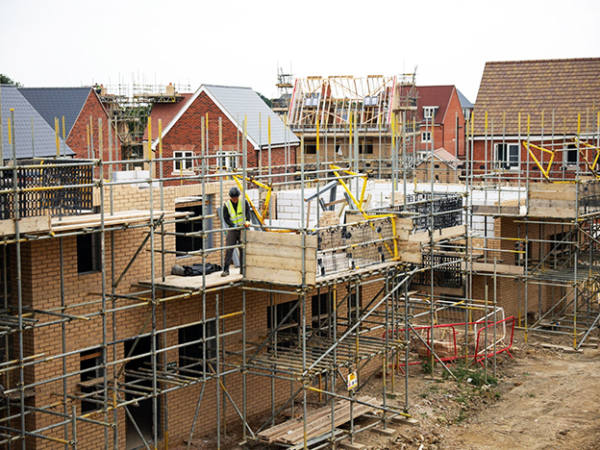As the housing market remains in the doldrums, chatter inevitably turns to schemes and ideas that can help the market out. By ‘help’, we mean ways to make buying homes artificially more affordable, and in so doing create political capital by reigniting house price inflation. Below are some potential moves.
Stamp duty
This is a government favourite, and there have been a lot of column inches in trade and national press calling (again) for this ‘most hated tax’ to be dropped. The housebuilders are also calling for its removal as they seek yet more bailing out. This is a major contributor to the national tax take (in 2023 £11.7bn was collected), so cutting it in this fiscal environment would be ill-advised. Also, we know from bitter experience that cutting or suspending stamp duty is always inflationary for house prices.
The other issue is that, in practice, for many buyers in many parts of the UK, stamp duty is not that high a cost. First-time buyers are exempt on the first £425,000, and the average house price in six of the 11 economic regions of England and Wales is below the £250,000 starting threshold. Also, if eliminated, what other levers would the state readily have to manipulate the market?
Another common argument is that stamp duty prevents older homeowners from downsizing. This is surely untrue in most cases, and a quick calculation shows that stamp duty, on average, only consumes around 3.5 per cent of the total equity unlocked when moving to a smaller house. Even in London, it is now around 8 per cent. This hardly feels like a deal breaker given that the average 55-65-year-old homeowner may be sitting on an unearned, otherwise untaxed gain of perhaps 1,000 per cent. The issue here feels more like ‘don’t want to’ rather than ‘can’t’ pay the tax.
Help to Buy version 2
This is extremely unlikely to happen – last time, it tied up tens of billions of government capital and created huge market distortions. The housebuilders have petitioned for this, unsurprisingly as it heavily skewed demand towards new homes and allowed buyers to purchase considerably more expensive homes. The ending of Help to Buy has left a large hole in sector profitability as builders now have to sell lower-priced homes, spend more on marketing and have to fund ‘buyer incentives’ out of their pockets rather than taxpayers’.
Handbrake turn on mortgage rates
From around November last year, mortgage rates began to tumble as lenders saw benchmark interest rates and swap rates beginning to fall. The all-important 10-year gilt yield fell from its 15-year high in October of 4.655 per cent to 3.45 per cent by Christmas; mortgage rates dropped by considerably more than this and the media declared that a ‘price war’ was in progress.
However, Christmas proved to be the low, and the 10-year gilt yield is back above 4 per cent, the all-important SONIA rate (used by lenders to price fixed-rate lending) is above 5 per cent and mortgage rates have been increasing in recent weeks. The mortgage market got ahead of itself and ignored the repeated warnings from the Bank of England (and the Federal Reserve in the US) that rates would fall neither far nor fast in 2024.
Use the right valuation approach
I have long argued that valuing the housebuilders on the basis of their net asset value or price-to-book is the wrong approach. While the book value of a housebuilder does describe some kind of value baseline, it is not what should be used for setting the share price. That is because the assets in this sector are not assets in, say, real estate terms but rather they are simply working capital, stock (mostly undeveloped land) waiting to be converted into a product for sale and a profit. They do not produce income or rise in value per se, and require work and capital to convert them into profits and cash. In any case, housebuilders' returns on capital employed (ROCE) are too low to support share prices above book value, yet many stocks are standing above book.
A popular argument here is that there is ‘hidden value’ in land holdings across the sector which supports trading above the book value. That is doubtless true (land is always held at cost not open-market value), but ‘hidden value’ is just another name for as yet unrealised future profits. It is very rare for a housebuilder to unlock that value by selling its sites undeveloped – they are almost always built out, eventually. So, even if considering the assets, you are still valuing the ultimate profits, meaning that earnings per share (EPS) and the price/earnings (PE) ratio have always been the right way to really value this sector.
Mergers and combinations
Once there were more than 30 listed housebuilders, today there are just nine and soon just eight after Barratt Development (BDEV) completes its acquisition of Redrow (RDW). Mergers and takeovers in this sector have been a consistent feature, but have always been something of a folly: more size-for-the-sake-of-size than creating shareholder value. Housebuilders that have expanded by acquisition are today no more profitable than those that have grown organically, and this makes sense. Land is a local market with no scale benefits, and so is labour, and while there can be marginal benefits in materials buying, history has shown these to be small. Overheads, too, show few savings as housebuilders are typically bloated federations of numerous local businesses with duplicated overheads, and remain so after expanding.
Another key issue is that land is the prime asset of an acquisition target but this is typically used up and fully replaced in three to four years. Buying another housebuilder is just a large land deal, not a value-creating expansion. Housebuilders own no intellectual property, don’t control pricing and do not own their means of production. The enlarged business also now has to buy a lot more land. Barratt may argue that there is value to be wrung out of its merger with Redrow, but in reality it is likely to prove hard to spot.
Will there be more takeovers or mergers? This becomes much harder to see, and Redrow had the advantage of a large stake held by founder Steve Morgan to seed the deal. If the market struggles to improve, more builders may believe that there is value from such a move, but the market is now so concentrated that competition issues are likely to become more of a barrier. One housebuilder buying another is simply a move to reduce competition for sales and land buying (which seem already to have landed the sector in trouble with the Competition and Markets Authority). Shareholders do not really win and, perhaps, sticking with Redrow alone might have been a better option – after all, its shareholders have seen a total shareholder return almost double that from Barratt. Should investors speculate on a rash of further corporate activity? Probably not.










